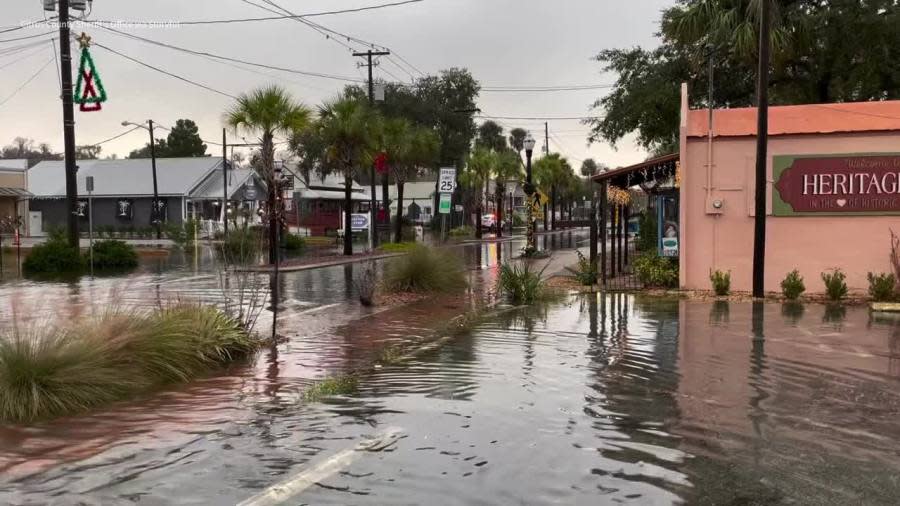Senators call for reform as National Flood Insurance Program faces lapse

Sen. John Kennedy (R-La.) led calls to reform the National Flood Insurance Program (NFIP) during a hearing Thursday, accusing the Federal Emergency Management Agency (FEMA) of lying to homeowners about their insurance rates.
The FEMA-run program provides flood insurance to property owners, renters and businesses. Unless lawmakers move to reauthorize, it is set to lapse on Feb. 2, 2024.
Kennedy said at a Senate Committee on Banking, Housing and Urban Affairs hearing that the program needs to be reworked to make it look “like somebody designed it on purpose.”
In September, FEMA announced that more than 1 million policyholders would see a decrease in their premiums when their policy was renewed. That’s out of about 5 million policyholders total. But Kennedy said he had not met anyone who actually saw their rate drop.
“This is just an excuse to raise premiums and they don’t care,” Kennedy said. “The whole purpose of the National Flood Insurance Program was to provide a product that people can afford.”
Instead, he pointed to people in Louisiana who saw their premiums increase by up to five times.
Members of the committee have introduced legislation to reform the program by capping the rate increase at 9 percent, instead of the 18 percent it currently allows for most policy holders.
Sen. Bob Menendez (D-N.J.), one of the sponsors of the bill, said the cap is necessary to protect policyholders from being priced out.
“What happens is that families who are forced to drop their insurance coverage due to rising costs and later suffer damage in future disasters? That’s the ultimate disaster to them.”
With insurance being more affordable, more people would be able to afford insurance through the program, which in turn helps widen the pool, spread out the risk and reduce cost, Menendez said.
The National Flood Insurance Program Reform Act also suggests vouchers for low- and middle-class families if premiums become too high, additional oversight measures for insurance companies and increased efforts to identify and reduce flood risks.
“If we know right now which homes are most at risk, we shouldn’t wait until the flood to step in and help,” Menendez said. “For every dollar of mitigation, the federal government saves $7 in disaster relief payments.”
Michael Hector, the president and CEO of Greater New Orleans Inc., told senators that while the program is expensive — estimated to cost $36 million over the past few years — FEMA said it has saved about $120 billion in losses. That puts the net benefit at $85 billion.
Hector said the program must be reformed and reauthorized, as a lapse would severely destabilize the national housing market and harm homeowners.
“The reality is that the NFIP program is about allowing the working coast and rivering parts of America to keep working,” he said.
For the latest news, weather, sports, and streaming video, head to The Hill.

 Yahoo News
Yahoo News 
